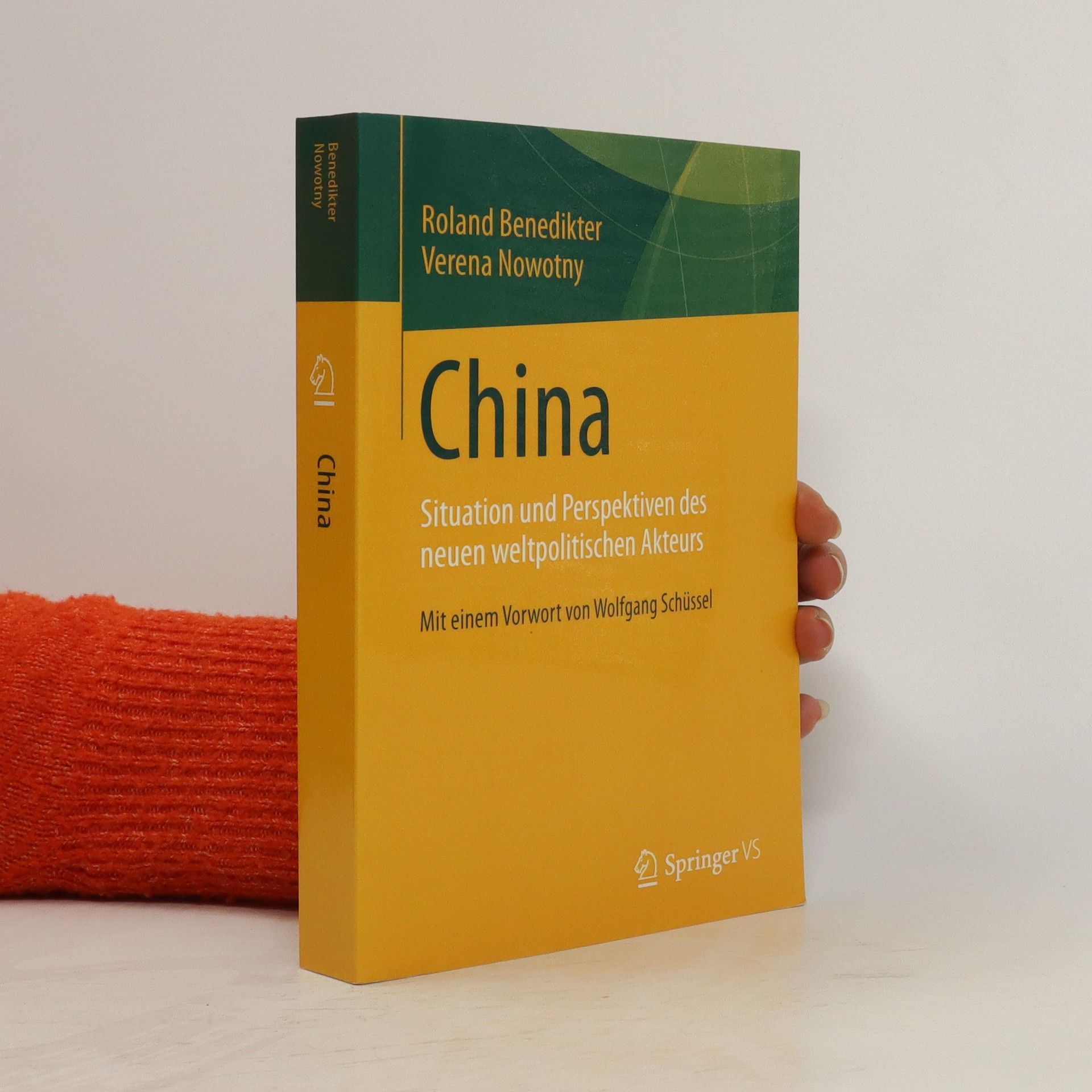Exploring the complex nature of the Coronavirus crisis, this volume presents a framework for developing "multi-resilience" in society. The authors argue that traditional concepts of resilience, which focus on single crises, are inadequate for addressing the interconnected challenges highlighted by COVID-19. They propose socio-political strategies to enhance collective intelligence and responsiveness, preparing societies for future multi-dimensional crises. The book aims to transform the lessons learned from the pandemic into a foundation for progress and better preparedness in the 21st century.
Roland Benedikter Livres






Focusing on the transformative role of religion and spirituality in contemporary globalization, this book explores twenty-one trends reshaping these concepts in "re-globalizing" societies. It employs an inter- and transdisciplinary approach to analyze how religious self-understanding and practices influence economics, politics, culture, demography, and technology. Additionally, it examines how these fields reciprocally affect religion and spirituality, providing a structured and accessible overview of this dynamic interplay.
Das Buch bietet einen umfassenden Überblick über die Situation und Perspektiven Chinas. Die Machtübergabe an eine neue Generation von Eliten innerhalb der herrschenden Einheitspartei in den Jahren 2012-13 weckt Hoffnungen auf Liberalisierung und möglicherweise Demokratisierung. Der Optimismus von Dissidenten, Zivilgesellschaftlern und Politikern ist derzeit so stark wie selten zuvor. Gleichzeitig gibt es jedoch auch Rückkehrtendenzen zu einem neuen Konservativismus und Nationalismus sowie eine expansivere Haltung Chinas, insbesondere im Pazifik und in Afrika. Verfasst an der Stanford Universität, wird ein interdisziplinäres Gesamtbild der aktuellen Lage des „mittleren Reiches“ im Spannungsfeld von Innen- und Außenpolitik gezeichnet. Dabei werden Politik, Wirtschaft und Kultur sowie der Einfluss von Religion auf die Haltung der Eliten berücksichtigt. Anhand zahlreicher Beispiele der gesellschaftlichen Entwicklung wird die Frage aufgeworfen, ob Demokratisierung oder der Aufbau eines Rechtsstaates realistische Perspektiven für Chinas Zukunft sind. Zudem wird untersucht, wie sich zukünftige Optionen auf aktuelle gesellschaftliche Phänomene im „Reich der Mitte“ stützen können.
Die Analyse beleuchtet die tiefen Spaltungen in der amerikanischen Gesellschaft und die Herausforderungen, die Joe Biden nach Donald Trumps Präsidentschaft bewältigen muss. Roland Benedikter untersucht die historischen Ursachen und Faktoren, die die gegenwärtige Entwicklung der USA prägen. Er bietet einen klaren Überblick über die politischen, gesellschaftlichen und kulturellen Aspekte der Biden-Ära und macht das Buch zu einer wertvollen Ressource für Bildung, politische Entscheidungsträger und die Zivilgesellschaft, um aktuelle und zukünftige Ereignisse zu diskutieren.
Die Erneuerung der politischen Mitte
Das Auseinanderbrechen der Gesellschaft, das Format Volkspartei und die Zukunft der Demokratie
- 210pages
- 8 heures de lecture
Dieses Buch diskutiert die Erneuerbarkeit der politischen Mitte in europäischen Demokratien. Im Umfeld wiederholter Krisenbündel haben neue soziale Technologien, Individualisierung und Aufstieg des Populismus sozialpsychologische Umbrüche hervorgerufen. Als Folge davon wurde das Zentrum offener Gesellschaften - die gemäßigte Mitte - an den Wahlurnen ausgedünnt. Das hat zur Zukunftsfrage geführt: Wie wäre die politische Mitte liberaler Demokratien wiederzubeleben, um "Demokratie in der Demokratie" als Maßstab dialogischer Mäßigung und Gemeinschaftsbildung, von Ausgleich und Vernunft zu wahren und weiterzuentwickeln? Ist das traditionell dazu bestimmte Format der "Volkspartei" am Ende - oder hat es eine Zukunft? Welche Modelle kämen in Frage?
Die Zukunft der Sozialwissenschaft
Worauf der deutsche Sprachraum sich einstellen sollte
- 170pages
- 6 heures de lecture
Der Wissenschaftsbereich in Zentraleuropa erlebt einen Umbruch in vielen Sektoren und auf verschiedenen Ebenen. Im deutschen Sprachraum wird die kontextbezogene Sozialwissenschaft durch den Druck globaler Themen herausgefordert. Die Entwicklung der Sozialwissenschaft im Kontext des „Glocalen“ erfordert die Berücksichtigung von fünf Dimensionen: 1. Strukturwandel der Wissenschaft, 2. Veränderung akademischer Arbeitsformen, 3. Bedeutung globaler Themen für regionale und lokale Forschung, 4. Datenrevolution (The New Big Science) und 5. verstärkte Hinwendung der Wissenschaft zur Gesellschaft. Es ist wichtig, den inter- und transdisziplinären Think-Tank-Charakter sozialwissenschaftlicher Arbeit zu stärken und die Verbindung zu transnationalen Themen bei lokal verankerten Einrichtungen realistisch auszubauen, ohne den praktischen Nutzen für spezifische Umfelder zu vernachlässigen. Die Vision sieht vor, dass der deutsche Sprachraum, ähnlich wie der gesamte europäische Raum, flexible Forschungseinrichtungen benötigt, die stark kontextgebunden und international vernetzt sind, sowie eine realistische Anbindung regionaler Expertise an globale Entwicklungen. Zudem sollte sich die Sozialwissenschaft auf ihre historische Identität als soziale Wissenschaft besinnen, ohne in Ideologien oder Lager zurückzufallen.
Postmaterialismus - 5: Das Kapital
- 232pages
- 9 heures de lecture
Topos Taschenbücher: Der Benediktinerorden
Gott suchen in Gebet und Arbeit
- 252pages
- 9 heures de lecture
Benedikt von Nursia beschreibt das ganze Leben des Menschen als Suche nach Gott. Ein Weg, diese Gottsuche zu verwirklichen und radikal dem Evangelium zu folgen, ist für ihn das Leben in Gemeinschaft, unter Regel und Abt, in Gebet und Arbeit. Unzählige Frauen und Männer sind seither seinem Beispiel gefolgt und haben sich auf diesen Weg gemacht. Die Klöster der Benediktinerinnen und Benediktiner sind so verschieden wie die Menschen selbst. Und doch leben alle nach der einen Regel, die heuteso aktuell ist wie vor 1500 Jahren. Die Autorinnen und Autoren laden ein, sich mit ihnen auf den Weg zu machen. Sie geben Einblick in Spiritualität und Geschichte des monastischen Lebens, berichten von Erfahrungen, die sie auf ihrem Weg der Gottsuche gemacht haben, und zeigen beispielhaft Aspekte benediktinischer Sendung heute.

